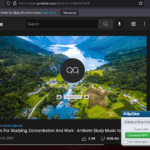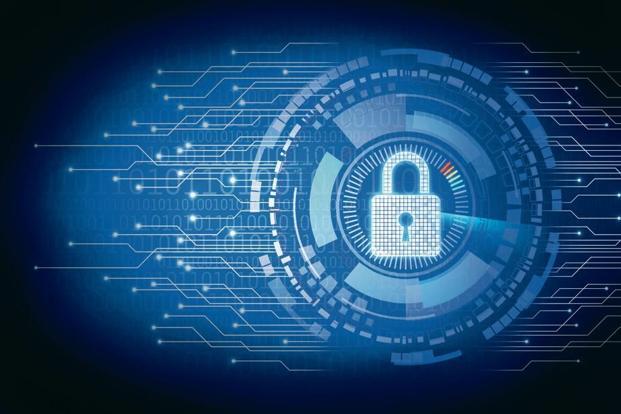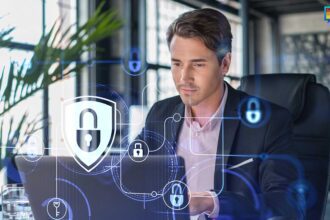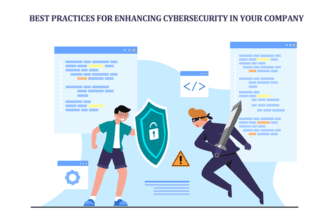VPNs are widely used nowadays to access sites that might be prohibited at a certain location or to browse privately. However, to know why we need a VPN, first of all, what it is and how it operates.
What Is VPN?
A VPN (Virtual Private Network) allows you to connect to another network securely via the Internet. VPNs can be used to access region-locked websites, protect your browsing activity on public Wi-Fi from snoopers, and more. For example, in many countries where gambling is prohibited, or specific gaming site does not operate, the players use VPNs to connect to casino online services to play their favourite games.
VPNs are top-rated these days. Initially, they were only a technique to securely connect business networks over the Internet or allow you to access a business network from your home.
Hackers can intercept anything you transmit over any unsecured public Wi-Fi network. While most of your internet traffic is unimportant, it may contain vital information such as bank account numbers, credit card numbers, or login credentials. Attackers throw wide nets, so using the public library’s or airport’s free internet offers a more significant danger.
Your online activity can be traced Whenever you visit a website or use an online application. Companies collect data on you to improve their products or show you customized advertising based on your internet activities. A VPN discount, especially when combined with other anti-tracking solutions, can improve your anonymity and help you avoid being tracked.
VPNs essentially forward all of your network traffic to the network, which is where the benefits come from, such as remote access to local network resources and circumventing Internet censorship. VPN functionality is built into most operating systems.
The Main Reasons to Use VPN
Here are some of the reasons mentioned why you need a VPN:
1. Secure Browsing Over the Public Wi-Fi
Getting access to public Wi-Fi is advantageous, but it can compromise security. Hackers might be watching you online and how you respond to your emails. So, your sensitive data, like passwords, might lead to identity theft id s at stake. Here VPN can protect you from such spies by protecting your passwords, bank information, and everything you browsed.
2. Protect Data from ISP
There are fewer chances of being caught by hackers and spies while using your Wi-Fi at home than on public Wi-Fi. But there are still chances that your data is vulnerable and can be compromised. Your data on the Internet is available to your internet service provider, also known as ISP. Hence your ISP will know everything about your activities on the Internet and everything that you are scrolling through. Even incognito mode is not helpful in this scenario, so there are vast chances of a data breach. However, you can hide your IP address from your ISP using VPN; hence your data on the Internet will not be leaked.
3. Secure Connection Against Third-party Apps and Services
Popular apps like Facebook have been admonished for exploiting user data. Along with your Internet service provider, third-party apps and online services also threaten your data. However, if you use a VPN, apps, and websites won’t be able to link your actions to your computer’s IP address. It can also protect you from having your location and browsing history tracked.
4. Accessibility to Unlimited Content at Different Locations
While some locations frown on you using a VPN to watch the latest episode of your favorite TV show in a region where the content isn’t available, A VPN can be an excellent way to get around content limitations. VPNs disguise your location and appear to be browsing from another remote location. That means you can watch your favorite TV show’s episode even if it was not broadcasted in your area.
5. VPN Compatibility Across Various Devices
Many VPN services protect other smart devices, including tablets, phones, and Personal computers. Although each VPN provider’s safety plans and the extent to cover different devices may differ slightly, several provide programs that keep you safe on many devices.
6. Safety While Working Remotely
VPN’s data encryption feature is one of its outstanding advantages. Data Encryption through VPN protects your data when working remotely for your company. Employees can access your company’s network and look at confidential data on their devices when they’re not at the workplace and are working remotely because remote work has been normalized after the COVID-19 pandemic. Hence a VPN is an excellent investment to keep sensitive data safe off-site.
Things to Consider for VPN Selection
A VPN solution is a sensible method to secure your data when using public Wi-Fi. But how do you pick the best virtual private network? When selecting a VPN provider, keep the following questions in mind.
- Is the interface user-friendly?
- Are they using the most up-to-date protocol?
- Do they impose data caps?
- The number of servers and what are the locations of the servers?
- Will you be able to connect to your VPN from multiple devices, and does the VPN support simultaneous connections?
- How much will it set you back?
- What is the connection speed?
- Do they provide 24/7 customer support?
- Do they have tried and tested the no-logs policy?
Some of the best VPNs are mentioned below:
- Express VPN
- Nord VPN
- PIA VPN
- Surfshark
- IPVanish
- CyberGhost
- Private VPN








